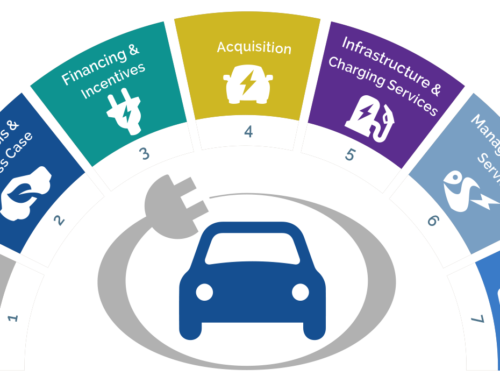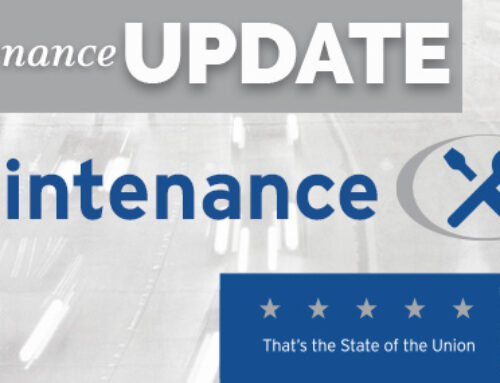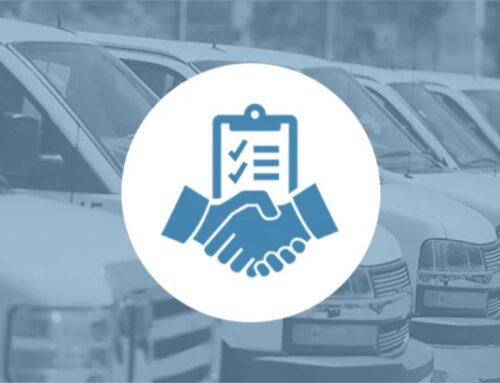5 Tips for Fleet Managers leading into 2020
In the dynamic fleet industry, it is not enough to only provide the vehicles when and where you need them. We also educate the fleet managers we partner with, as each company has a unique purpose and goal for their fleet. Here are some tips you can be implementing throughout the remainder of the year leading into 2020.
With the end of the year fast approaching, whether your vehicles need to be replaced, ordered, or you’re thinking of turning it over to a Fleet Management professional like ourselves, keep these things in mind:
1. Maintenance of your vehicles doesn’t need to be complicated
If you want your drivers to maintain their vehicles, so that the organization gets the most value out of each and every car or truck, you’ll need to make it easy for them to do so.
What should you do?
Not only will you need to make taking vehicles for maintenance as effortless as possible, you’ll want to have helpful reminders in place as well. Whether you go about with simple email reminders or notes, or you choose automated reminders and text updates, you’ll want to have a plan in place. We have dedicated account managers, who you can read about here, that are in constant communication with your drivers about oil changes, tire rotations and so much more.
When it comes to monitoring and deciding upon the actual maintenance and what is required, that is where our trusted experts come in. Fleet management companies like Union Leasing can provide lower labor and parts costs due to vendor relationships and their volume of business, and a simple call to our maintenance department will lift that weight off your shoulders. Furthermore, we will also work on your behalf to complete warranty claims and secure manufacturer goodwill repairs at the end of your warranty period.
2. Set guidelines for vehicle purchasing
When you purchase a vehicle, or fleet of vehicles, the cost obviously doesn’t stop there. Costs including fuel, vehicle depreciation, and maintenance will be present throughout the life cycle of your vehicles. However, without consistent guidelines present, sometimes vehicles will be purchased as needed and only kept for a short amount of time to fulfill the immediate need. This can add unnecessary expense to your fleet.
What should you do?
The best way to go about purchasing vehicles is with plenty of insight into the type of vehicle you need and what it will be used for. In addition, leasing or bulk purchasing may be a much better route than getting vehicles on an as-needed basis. Finally, you’ll want to consider when the right time is to buy and sell these vehicles to get the best value possible. Union Leasing can be a huge help in these decisions, as defining the life cycle of your fleet of vehicles and helping you plan for the life of your vehicle is one of the key benefits of using a fleet management company.
One part of this life cycle is the Remarketing of the vehicle, of which you can learn more about at this link,
3. Don’t just react to safety hazards
By only taking a reactive approach to safety you place a lot of risk on your company and employees. If you choose not to properly educate your drivers about safety or equip them with safe vehicles and procedures, your company could be held liable in the case of an accident. A proactive approach could save you and your drivers from an expensive lawsuit, a collection of tickets and violations, an injured driver or a damaged vehicle.
To read more about how Union Leasing handles these types of violations, click here.
What should you do?
Taking a proactive approach to safety includes many aspects such as driver education, adding safety devices or telematics to vehicles, proper tracking of fuel cards, setting clear rules for drivers and more. There are so many distractions and safety hazards facing your drivers that anything you can do to protect them is beneficial. If you can plan for potential risks you’ll also make your drivers feel more comfortable about their safety. While the cost of adding a hands-free device or telematics software may be somewhat costly upfront, it will pay off in the long run. Just remember, in most cases the alternative would be much more expensive.
4. Set clear expectations for fleet drivers
Your drivers should always be responsible for maintaining a performance standard. Whether this involves keeping up to date with vehicle inspections, driving in a fuel-efficient manor, or something else, you’ll want to encourage your drivers to develop good driving habits. However, Union Leasing can be that help.
What should you do?
It’s not enough to simply have a clear policy. You also need to strictly enforce this policy. You can incentivize drivers who do an exceptional job but you’ll also want to have clear consequences for those who don’t follow the policy. Not only will holding drivers responsible offer potential fuel savings and prolong the life of your vehicles, it will also keep your drivers safer on the road.
5. Use as much data as possible
It’s not enough to just track the absolute basics. You need the right data and it needs to be specific or you could miss something vital to your fleet’s operation, for example selection of your vehicle can drastically impact how effective your fleet is.
For a complete run down of the 2020 Model Year Information, click here.
What should you do?
Not only will specific, relevant data help you avoid potential issues, it will also show you areas where you can make improvements.
-Cost Per Mile
-Accident Rate
-Fuel Efficiency





